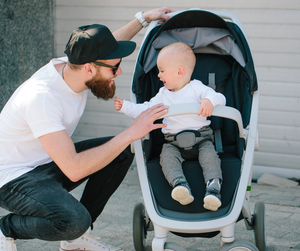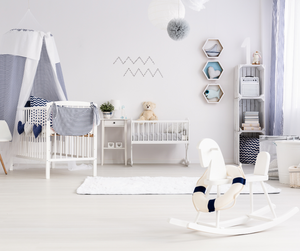Breastfeeding
Acquired ability
Because breastfeeding is a natural experience, many new mothers expect to be able to do it right away. In truth, it may come naturally to some people but not to others. Breastfeeding is a skill that both you and your child must acquire together. It may feel awkward at first, but don't worry, your midwife and health visitor are here to help.
What are the advantages of breast-feeding?
Breastfeeding has numerous physical and emotional advantages. It can be a wonderful method to establish a loving relationship and a deep emotional attachment with your infant at first. It can also benefit both of your mental health and well-being.
Advantages for your baby's health
Breastfeeding has long-term health benefits for your infant that will last until they reach maturity. It can aid in the development of a baby's IQ as well as their personal and social development.
It may also assist to lower the risk of:
bacterial infections
Leukemia in children
the condition of being overweight
Diabetes mellitus
SIDS stands for Sudden Infant Death Syndrome.
Eczema is a skin condition that causes itching and burning.
bronchitis
allergies to foods
Later-life heart disease
Premature infants
Babies born before 37 weeks have a weaker immune system, making infection more difficult to resist. Breastfeeding a premature infant can help safeguard him or her.
Your milk is also ideally balanced for your premature baby because it contains antibodies, hormones, and other growth and development components.
Advantages for you
Breastfeeding has been shown to lessen the risk of:
Breast cancer is a type of cancer that affects
cancer of the ovaries
Anaemia (a condition in which the tissues and organs in your body do not receive enough oxygen, causing you to feel weak, weary, and short of breath).
Formula milk does not provide the same level of protection for babies and does not provide any health benefits to adults.
There are a variety of practical reasons why you might desire to breastfeed as well. Breastfeeding, for example, is:
less expensive than formula feeding
quicker because you don't have to constantly make up bottles
When you're out and about, it's easy to do.
When should I start breastfeeding?
If you choose, you can begin trying to breastfeed as soon as the baby is delivered. Your breasts will produce colostrum, a yellow fluid, in the first few days after your baby is born. Because this is concentrated food, your baby will not require much during each feeding, although they may want to feed frequently (maybe every hour).
After around 3 days, your milk will ‘come in,' and you will notice that your breasts will get significantly fuller. Depending on how much milk your baby drinks, the amount you create will rise or decrease. It may take a few days for your milk supply to catch up with their need.
If you've had more than one baby, your body will produce enough milk to feed all of them.
It can be a little more difficult to establish breastfeeding following a caesarean section, but there are many things you may try to help.
How long should I continue to breastfeed?
The World Health Organization recommends that all babies be nursed exclusively for 6 months, then for 2 years or as long as mother and baby want, alongside solid meals.
The longer you breastfeed, the longer the protection lasts and the more benefits you receive. Try not to be concerned about how long you will be able to nurse. Any amount of breast milk is beneficial.
When you decide to discontinue breastfeeding, it is entirely up to you and your baby.
Is there any reason I won't be able to breastfeed?
There are medical grounds for not breastfeeding in a few uncommon circumstances. If you have HIV, for example, you should not breastfeed.
Some drugs, such as lithium, are also incompatible with breastfeeding. If you have a medical or mental health issue or are taking medications, speak with your midwife or health visitor.
Alcohol and breast-feeding
An occasional alcoholic drink is unlikely to hurt you if you are breastfeeding. However, limit your alcohol consumption to no more than one or two units per week. There is some evidence that drinking more than two units of alcohol per day while breastfeeding may have an effect on your baby's development.
Breastfeeding and tobacco use
If you're a new mother, it's critical that you try to quit smoking. Even if it is tough, it is critical that you do not discontinue nursing. Breastmilk will continue to protect your infant from infections and offer nutrition.
If you or your partner smoke, attempt to do it outside to keep your home smoke-free. It's also a good idea not to share a bed with your newborn if you smoke, as this raises the risk of Sudden Infant Death Syndrome (SIDS).
What should I do if I want to breastfeed?
Sit in a comfortable position with your back supported.
Hold your infant in a straight line with their head and body.
Support your baby's neck, back, and shoulders by holding them close to you. Your infant should be able to effortlessly tilt their head back and should not have to reach out to feed.
Place your baby's nose on the other side of your nipple.
Allow your baby's head to tilt back slightly so that their top lip brushes against your nipple. This should encourage your baby to open his or her mouth wide.
When your baby's mouth opens wide, their chin should be able to touch your breast initially, with their head tilted back to access as much breast as possible.
When your baby latches on, their nose should be clear and their cheeks full and rounded as they feed.
Who can assist me with my breastfeeding?
In your birth plan, you may have mentioned trying to breastfeed immediately after the birth. Even if you hadn't considered it previously, your midwife should be present after the birth to assist you in starting breastfeeding.
Unless there are complications, you should not be separated from your infant for at least an hour following birth. During this time, your midwife should assist you in making skin-to-skin contact with your baby, which promotes breastfeeding.
Your midwife will teach you how to nurse, including how to situate your baby on the breast and effectively attach them. You should also be taught how to express yourself.
Your health visitor may also be able to assist you.
If you need to talk to someone in between appointments, you should be able to find contact information for local assistance in your baby's red book. This is your unique child health record, which contains information about your child's health and growth.
Your red book should also include contact information for local breastfeeding drop-ins, cafes, and centres. On the NHS website, you can also discover information on local support.
What can partners do to assist in breastfeeding?
If your girlfriend is trying to breastfeed, you can help her by doing the following:
offering motivation and reassurance
ensuring that your breastfeeding partner has what they require to be comfortable
doing everything possible to keep stress to a low
If your spouse is fatigued, talk to her while she is breastfeeding.
Encourage your companion to consume food and beverages on a regular basis.
More assistance and information
The breastfeeding buddy offers hints and guidance to mothers who are having difficulty breastfeeding.
The Breastfeeding Network offers breastfeeding assistance and information. They also have a phone number and a webchat facility.
The Association of Breastfeeding Women is an organisation of trained volunteers who provide assistance to breastfeeding mothers and their families. They offer online resources, a helpline, webchat, and local support groups.
Twins Trust is a nonprofit that helps families who have twins or triplets. They provide information on pregnancy, parenting, and breastfeeding.
The National Childbirth Trust (NCT) is a non-profit organisation that offers information and support on all areas of pregnancy, birth, and early parenthood, including breastfeeding.
The UK Association for Milk Banking gives information on how to give breast milk and how to use donated breast milk if your baby is preterm or unwell.
Baby Café is a network of breastfeeding support groups. You can find your local drop-in by entering your postcode on the website.




